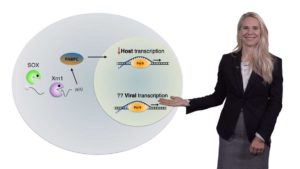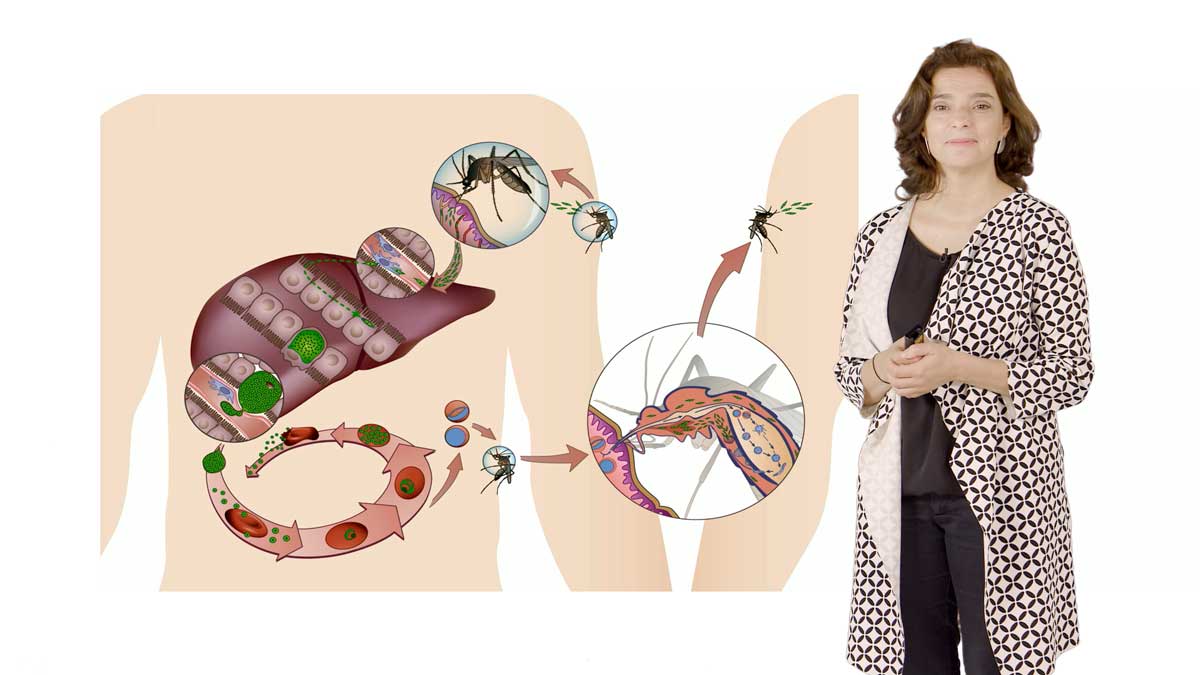Talk Overview
Dr. Britt Glaunsinger provides an overview of virology, and describes how the study of viruses has guided the understanding of many fundamental cellular processes, from gene expression to cancer. These insights arise from studying how viruses manipulate and hijack cellular machinery during infection and viral replication. Viruses can use the host machinery to their advantage, altering the gene expression landscape of the cell to create an environment favorable for the infection to progress. As Glaunsinger explains, one way viruses alter gene expression is by affecting the messenger RNA (mRNA) degradation process. By increasing decay of cellular messages, viruses can decrease competition for access to the translation machinery and dampen the expression of immune stimulatory elements that restrict viral replication.
In her second talk, Glaunsinger explores gene expression control by viruses like Kaposi’s sarcoma herpesvirus (KSHV), a frequent cause of cancer in AIDS patients. KSHV stimulates degradation of mRNA by encoding a nuclease, SOX, which is able to target a broad set of mRNAs for degradation yet cleaves them at specific sites recognized by a combination of RNA sequence and structure. Glaunsinger then describes how widespread mRNA degradation by viral nucleases such as SOX causes redistribution of RNA binding proteins in the cell and restricts mRNA transcription by RNA polymerase II. Thus, alterations to the rate of mRNA decay can have ripple effects in the cell that influence upstream events in gene expression.
Speaker Bio
Britt Glaunsinger

Dr. Britt Glaunsinger is a Professor at the departments of Plant and Microbial Biology and Molecular and Cellular Biology at the University of California, Berkeley, and a Howard Hughes Medical Institute Investigator. She earned her bachelor’s degree in Molecular and Cell Biology from the University of Arizona (1995), and completed her doctoral degree in Molecular… Continue Reading











Leave a Reply